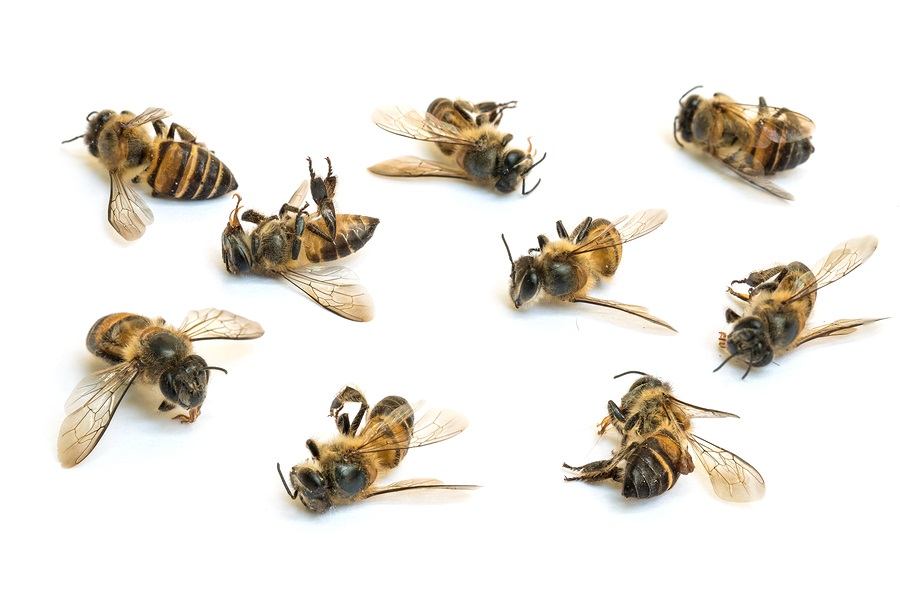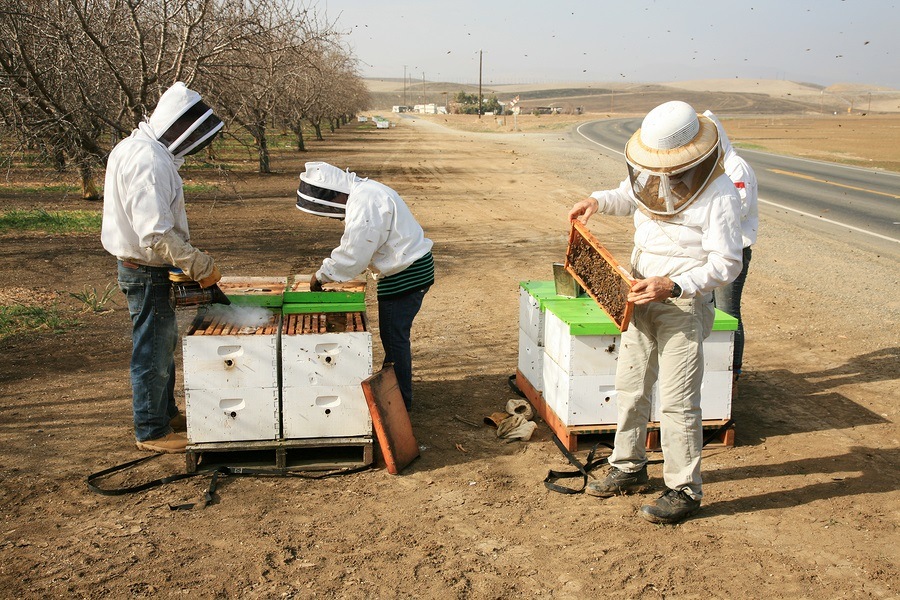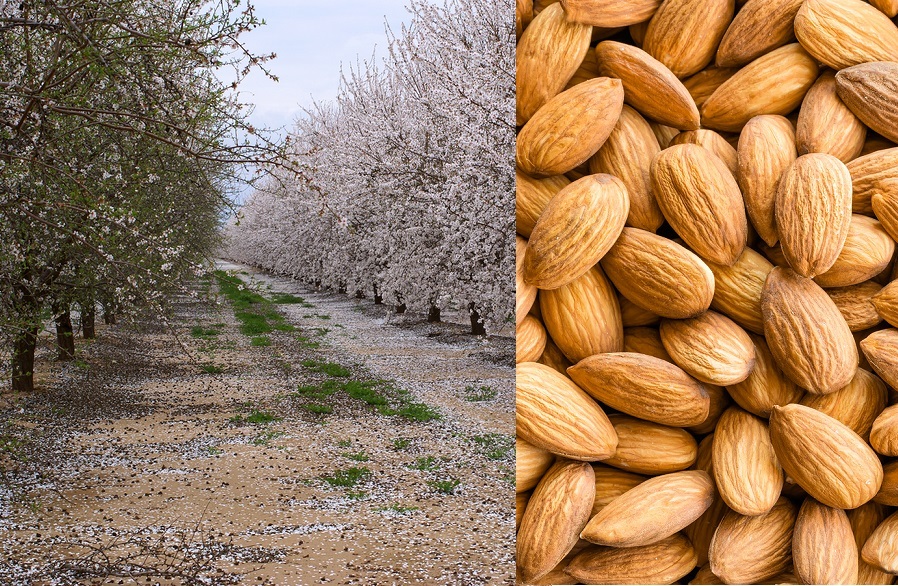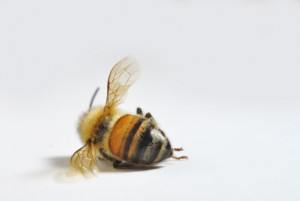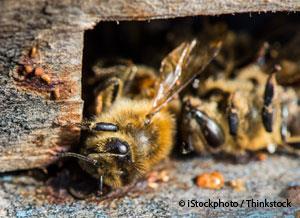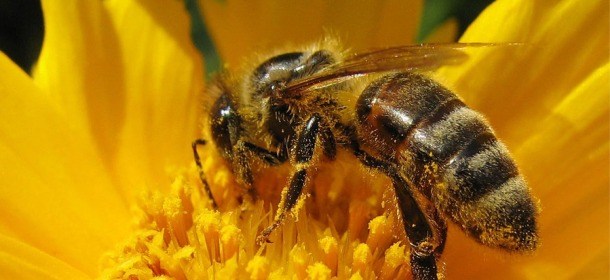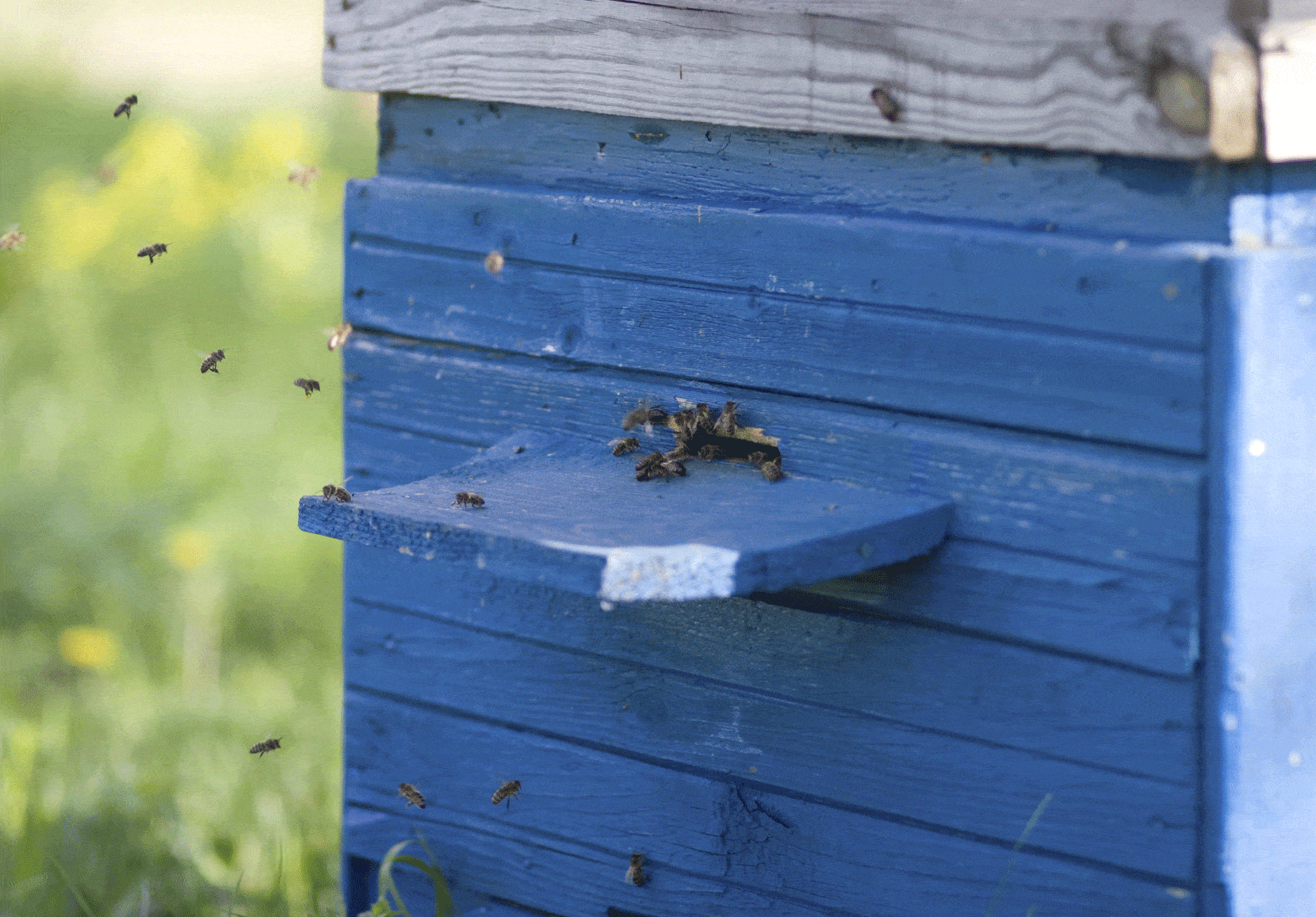Glyphosate Weed Killer Linked to Bee Deaths
The world’s most widely used weedkiller – used on over 85% of GM crops – may also be indirectly killing bees. New research from The University of Texas at Austin shows that honey bees exposed to glyphosate, the active ingredient in Roundup, lose some of the beneficial bacteria in their guts and are more susceptible to infection and death from harmful bacteria. Scientists believe this is evidence that glyphosate might be contributing to the decline of honey bees and native bees around the world. The findings are published this week in the journal Proceedings of the National Academy of Sciences.




